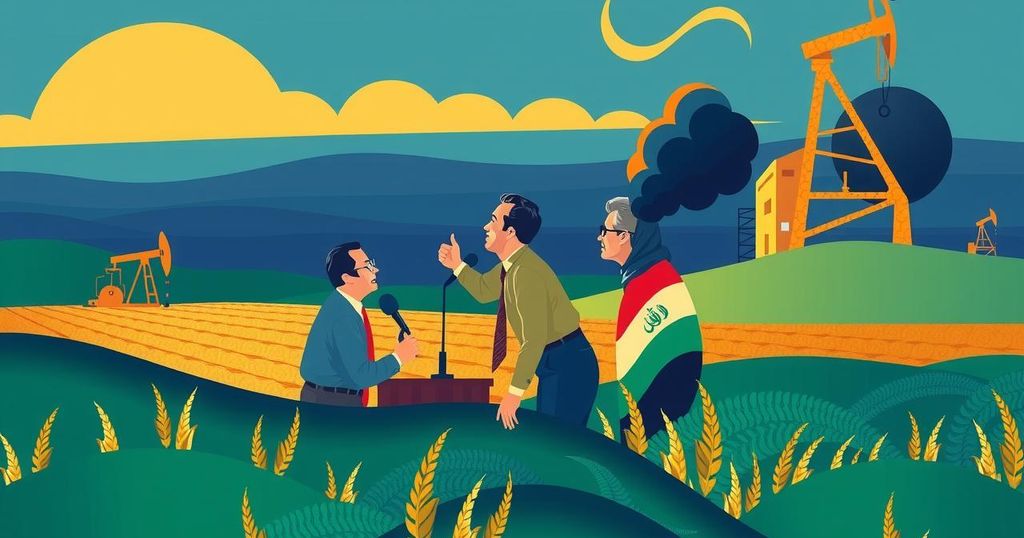With Eye on Oil Wealth, Suriname Parties Enter Coalition Talks
Suriname held critical parliamentary elections amid its recent oil discoveries, where incumbent President Chan Santokhi’s VHP party and Jennifer Simons’ National Democratic Party emerged with nearly equal seats. Both parties will likely negotiate with smaller parties to form a coalition government. The prospects of oil wealth have stirred hopes for improved public services, and a “Royalties for Everyone” fund aims to allocate funds directly to citizens starting in 2028.
Suriname, a small country in South America, recently held parliamentary elections that will play a vital role in determining how the nation utilizes its newfound oil wealth, drawing attention from the two leading parties. In a voting scenario where the incumbent VHP party led by President Chan Santokhi and Jennifer Simons’ left-wing National Democratic Party were neck-and-neck, estimates indicated each would secure between 17 and 18 seats with nearly all votes counted.
Suriname, home to just 600,000 residents, is one of South America’s poorer nations, seeking to harness its recently discovered oil deposits to stimulate economic growth while staying committed to combating climate change. French oil giant TotalEnergies is set to invest $10.5 billion into an offshore oil field, projected to produce 220,000 barrels per day once operational, creating both excitement and concern.
Campaigning heavily centered around oil revenues took place in the lead-up to the election, which also serves as a stepping stone for electing a new president and vice president. Recognizing the economic potential, President Santokhi emphasized the substantial income from fossil fuels, saying it could augment public services and enlist every citizen in national progression. Meanwhile, Simons vowed to enact legislation to ensure local enterprises benefit from the oil boom, aiming to keep the country’s prosperity grounded in its own community.
Voters expressed hope for a brighter future. Laloo Raghnie, 29, wishes for improvements in his country such as better infrastructure and education for children, voicing optimism that oil wealth could bring about meaningful change. With each party unable to secure a majority, they are anticipated to negotiate with smaller parties to establish a governing coalition.
A noteworthy initiative tied to the oil revenue is the “Royalties for Everyone” fund, which will earmark funds for direct payments to citizens starting in 2028 once oil production begins. This move signifies a shift towards ensuring that ordinary Surinamese see tangible benefits from the nation’s resources.
In this diverse nation, which celebrates 50 years of independence this November, the electoral process underlines Suriname’s political dynamics and aspirations, especially in light of its growing relationships, notably with China as a trade partner. US Secretary of State Marco Rubio’s visit to Suriname this past March highlights the international interest surrounding this small country as it navigates its future amidst competing global powers.
In summary, Suriname’s recent elections will shape the management of its oil wealth and the governance of its people. Both leading parties are expected to collaborate with minor parties to form a functional government as the nation stands poised for potential economic transformation fueled by oil. The establishment of direct financial benefits for citizens underscores Suriname’s aim for inclusive growth, as it seeks to enhance living standards while also asserting its place on the international stage.
Original Source: www.wyomingnewsnow.tv




Post Comment